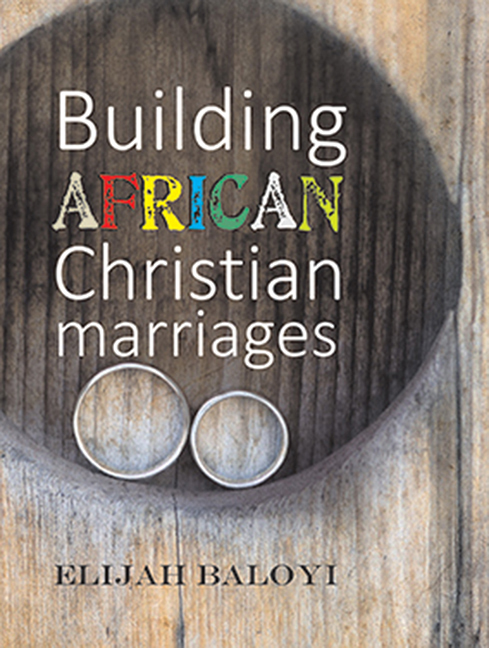Book contents
- Frontmatter
- Dedication
- Contents
- Foreword
- Preface
- Acknowledgements
- Chapter 1 Traditional obstacles in young African marriages
- Chapter 2 Excessive family intervention in African marriages
- Chapter 3 The influence of lobolo on the African marriage union
- Chapter 4 The negative influence of infertility on young African marriages
- Chapter 5 Some biblical teachings about marriage
- Chapter 6 Conclusion
- Appendix A comparison of the African and the biblical perspective on marriage
- References
- Index
Chapter 1 - Traditional obstacles in young African marriages
Published online by Cambridge University Press: 14 February 2020
- Frontmatter
- Dedication
- Contents
- Foreword
- Preface
- Acknowledgements
- Chapter 1 Traditional obstacles in young African marriages
- Chapter 2 Excessive family intervention in African marriages
- Chapter 3 The influence of lobolo on the African marriage union
- Chapter 4 The negative influence of infertility on young African marriages
- Chapter 5 Some biblical teachings about marriage
- Chapter 6 Conclusion
- Appendix A comparison of the African and the biblical perspective on marriage
- References
- Index
Summary
Introduction
Two of the widely known and well-used Tsonga sayings, ‘Vukati bya katinga’ (marriage roasts) and ‘Vukati va kandza hi mbilu’ (it takes a woman's long-heartedness [long-suffering] for marriage to succeed). (Maluleke & Nadar 2002:9-11) have been internalised and normalised in the Shangaan culture. These idioms not only encourage negative thinking about marriage, particularly in women, but also provoke people to ask questions such as: Who is to be roasted in marriage, does this roasting bring happiness, would young people be inclined to marry if being roasted is a possibility? These sayings represent the notion that, although marriage is highly regarded and respected by Tsonga-speaking people (and most African tribes), it can still be used as an instrument to oppress the couple and to ensure a difficult marital relationship. Coming from the Shangaan culture myself, I have observed that some of the Christians within this culture often lack a basic understanding of marriage, particularly with regard to issues relating to expectations, the ideal partner and other factors that have to be taken into account when marriage is considered.
Besides being man enough or woman enough to marry, many other things have to be understood before Christians and non-Christians within this particular culture get married. The lack of basic understanding may be due to the fact that very little has been written about Christian marriage among the Shangaans. Van Rensberg (2001) points out that there are few sources available on Shangaans and that those that do exist are very old, as will be seen later (cf. Junod 1927; Schapera 1955). This research indicated that only Maswanganyi (s.a.:7) had anything to say about Shangaan Christian marriage. The particular question regarding a biblical suitable partner, however, was never properly addressed. Kimathi (1994:12) also mentioned that African traditional world-views governed marriage and family life.
Many criticisms as well as misinterpretations have been applied to invalidate the customs that are involved when African people marry. That is why Maswanganyi (s.a.:11 [1]) concludes that African culture has been unsuccessful in providing answers to the question of a suitable wife: for example lobolo, family intervention and the importance of fertility.
- Type
- Chapter
- Information
- Building African Christian Marriages , pp. 1 - 8Publisher: University of South AfricaPrint publication year: 2013



